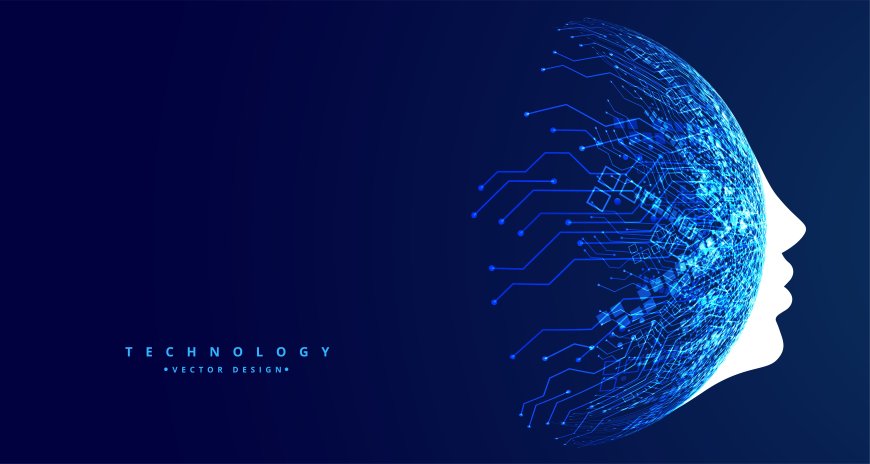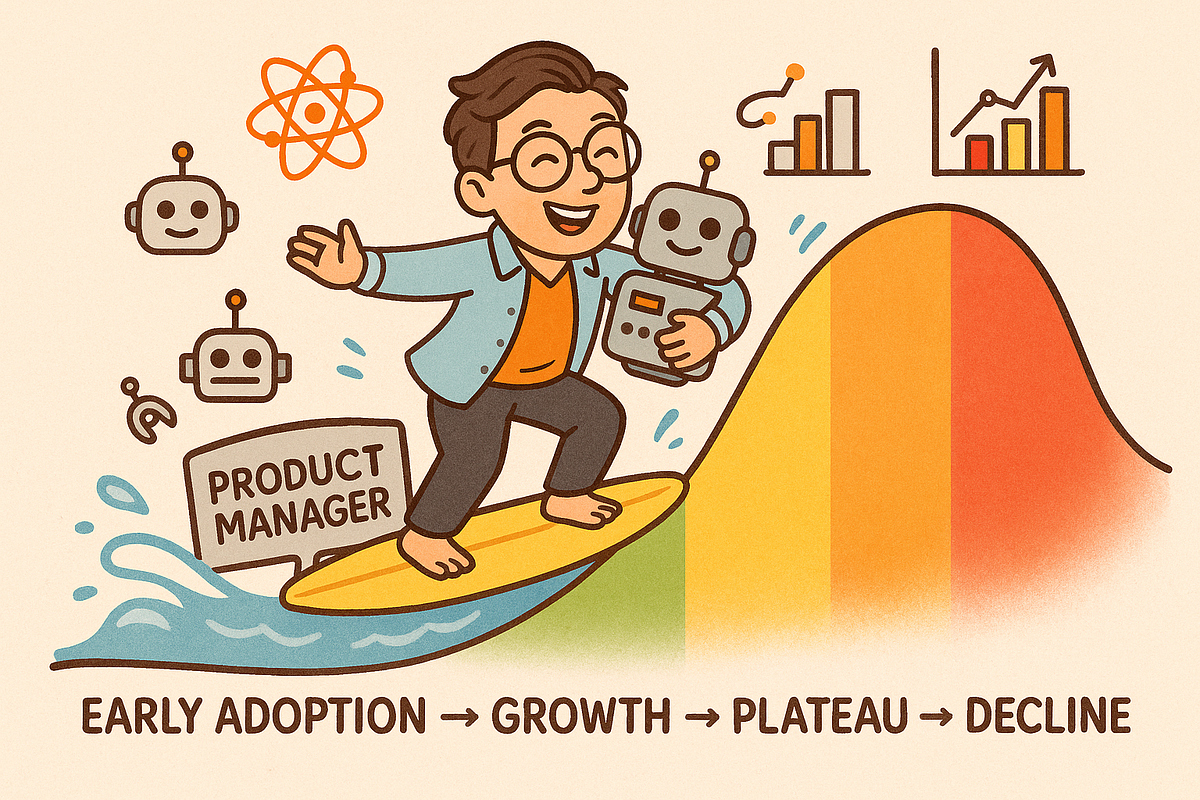How AI Services Are Transforming Businesses in New York
The impact of AI services on businesses in New York is profound and growing. Whether it's in finance, retail, healthcare, or education, AI is enabling smarter decisions, greater efficiency, and superior customer experiences.

New York, the economic engine of the United States, has long been a hub for innovation and business growth. With the rise of Artificial Intelligence (AI), companies across the five boroughs—from Manhattan to Brooklyn—are rapidly adopting AI services to improve productivity, enhance customer experience, and gain a competitive edge. From finance and real estate to healthcare and retail, AI is transforming the way businesses operate in New York.
As the city continues to position itself as a technological powerhouse, understanding the strategic role of AI services in business transformation becomes increasingly crucial. In this blog, we’ll explore how AI is reshaping various industries in New York, the kinds of services being adopted, and what the future looks like for businesses embracing AI.
AI in Financial Services: Enhancing Accuracy and Reducing Risk
New York’s financial sector is at the forefront of AI innovation. With Wall Street at its heart, financial institutions are using AI to make real-time decisions, detect fraud, and optimize trading algorithms.
AI algorithms can analyze massive datasets in seconds, providing valuable insights into market trends and client behavior. Risk assessment models, once handled by human analysts, are now augmented by machine learning algorithms that offer more accuracy and predictive capabilities.
One of the major developments in this area includes the use of Natural Language Processing (NLP) for document analysis and customer interaction. Whether it's managing portfolios or identifying suspicious transactions, AI is making financial operations smarter and more secure.
Retail Industry: Personalization and Automation at Scale
From local boutiques in SoHo to global retailers headquartered in Midtown, AI is helping businesses in the retail sector offer personalized experiences to their customers.
AI-driven recommendation engines, automated inventory management, and dynamic pricing algorithms have revolutionized how retail operates in New York. Chatbots and virtual assistants are increasingly used to provide 24/7 customer service, improving customer satisfaction while reducing operational costs.
For many retailers, these innovations are often supported by firms specializing in custom AI chatbot development services, enabling businesses to offer intelligent, tailored support without requiring extensive human resources.
Healthcare Sector: Smarter Diagnostics and Patient Care
New York is home to some of the most prestigious medical institutions in the world. AI is playing a vital role in improving diagnostic accuracy, optimizing hospital operations, and personalizing treatment plans.
Machine learning models are now being trained to detect diseases from medical imaging data—helping radiologists identify issues like tumors or fractures more accurately and quickly. AI-powered predictive analytics are also helping hospitals anticipate patient admissions, optimize resource allocation, and reduce emergency room wait times.
In addition, virtual nursing assistants powered by AI are supporting patients post-discharge, ensuring medication compliance and reducing readmission rates. These applications are improving not just care outcomes, but also patient satisfaction.
Real Estate: Intelligent Market Forecasting and Virtual Assistance
The real estate industry in New York is notoriously fast-paced. AI is being used to forecast market trends, determine property values, and automate client interactions.
Through the analysis of historical property data and market signals, AI tools can provide accurate price predictions and identify undervalued assets. Additionally, AI chatbots and virtual assistants are being used by real estate agents to respond to buyer queries in real-time, schedule viewings, and even provide virtual tours.
These advancements are allowing real estate professionals to focus on relationship-building and negotiations, while AI handles the repetitive tasks.
Legal and Compliance: Speed and Precision
In a city filled with law firms and corporate legal departments, AI is making strides in the legal domain as well. E-discovery, contract review, and legal research are now being augmented by AI-powered tools that drastically reduce the time required for such tasks.
AI models can sift through thousands of documents, highlight critical clauses, and even suggest edits based on legal precedents. This helps lawyers focus more on strategic decision-making rather than paperwork.
One of the biggest benefits here is the increased accuracy and reduced error margin, which is vital in a sector where every detail counts.
Small and Medium Enterprises (SMEs): Leveling the Playing Field
While much of the spotlight falls on large corporations, AI is also empowering small and medium-sized enterprises in New York. Cloud-based AI platforms allow SMEs to leverage tools like predictive analytics, customer segmentation, and marketing automation without needing in-house data science teams.
For instance, local restaurants use AI for demand forecasting and inventory management, while small online stores utilize AI-powered recommendation engines to boost sales. This democratization of technology is leveling the playing field and allowing businesses of all sizes to compete in a data-driven marketplace.
For SMEs looking to build AI-powered applications tailored to their unique needs, working with an ai development company in nyc offers a practical way to implement scalable and effective solutions.
Manufacturing and Logistics: Efficiency through Intelligent Systems
In the lesser-known industrial areas of New York—like Hunts Point or the Brooklyn Navy Yard—AI is streamlining manufacturing and logistics operations.
From predictive maintenance of machinery to supply chain optimization, AI helps reduce downtime and ensure timely delivery. AI-driven robotics are also being used for quality control and assembly, allowing for higher precision and productivity.
Warehouses are adopting smart systems that use AI for inventory tracking and demand forecasting, ensuring stock levels are always optimal. These innovations not only cut costs but also enhance overall operational efficiency.
Human Resources: Smarter Hiring and Employee Engagement
AI is transforming how HR departments operate across New York’s diverse industries. AI-powered tools are being used to screen resumes, schedule interviews, and even evaluate candidate performance during video interviews using emotion recognition and speech analytics.
Companies are also using AI to monitor employee engagement and sentiment through internal communication platforms. This data helps in designing better employee retention strategies and improving workplace culture.
Additionally, some businesses looking to scale up their tech teams are opting to hire asp.net programmers with the help of AI-based recruitment platforms, which can match the right talent to the right roles with impressive precision.
Education: Adaptive Learning and Institutional Management
From public schools in Queens to Ivy League campuses in Manhattan, AI is enriching the educational experience in New York.
AI-powered adaptive learning systems tailor educational content to the learning pace and style of individual students, ensuring more effective outcomes. Meanwhile, administrative tasks like scheduling, attendance, and even grading are being automated, freeing up educators to focus on teaching.
Some institutions are also experimenting with AI in career counseling, where predictive models can suggest suitable career paths based on a student's interests, performance, and job market trends.
Hospitality and Tourism: Personalized Experiences and Operational Control
New York's hospitality and tourism sectors are also reaping the benefits of AI. Hotels are using AI for dynamic pricing, energy management, and personalized guest experiences.
AI chatbots help guests with booking, room service, and even local recommendations. Behind the scenes, AI is helping hotel managers monitor customer feedback in real-time, identify issues, and respond proactively.
This technology enables New York’s hospitality sector to deliver world-class service to millions of visitors annually, while keeping operational costs in check.
Challenges and Considerations
While AI presents significant opportunities, it’s not without challenges. Data privacy, algorithmic bias, and ethical concerns are important issues businesses must address.
In a highly regulated environment like New York, compliance with state and federal laws is critical when deploying AI solutions. Moreover, businesses must invest in employee training to ensure seamless integration of AI tools.
It's also vital to choose the right technology partners, maintain transparency in AI-driven decisions, and keep human oversight as a core element of all automated systems.
The Road Ahead: A Future Driven by AI
AI is no longer a futuristic concept; it’s a present-day reality that's reshaping the business landscape in New York. As the technology matures and becomes more accessible, we can expect even broader adoption across industries—from startups to Fortune 500 companies.
Public and private sectors alike are making investments in AI infrastructure, including workforce development programs, startup incubators, and academic research collaborations. These initiatives are laying the foundation for New York to become a global leader in AI-driven innovation.
Conclusion
The impact of AI services on businesses in New York is profound and growing. Whether it's in finance, retail, healthcare, or education, AI is enabling smarter decisions, greater efficiency, and superior customer experiences.
Businesses that adapt early and responsibly to this new wave of intelligent technology are not just keeping up—they’re setting the pace for the future.
By partnering with the right experts and leveraging advanced tools, companies can harness the full potential of AI to lead in their industries, drive innovation, and deliver lasting value in one of the world’s most competitive markets.



































































![https //g.co/recover for help [1-866-719-1006]](https://newsquo.com/uploads/images/202506/image_430x256_684949454da3e.jpg)

























![How Smart PMs Scale Their Careers in Any Org [TPG Live Recap]](https://tpgblog.com/wp-content/uploads/2025/06/2025-06-12-thumbnail-action.png?#)























































